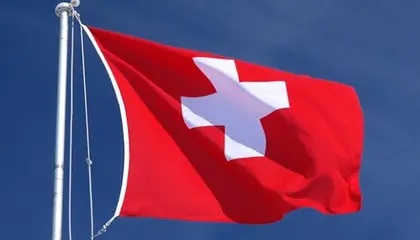The Government of Switzerland has ruled that the seizure of private Russian assets would undermine the Swiss constitution and the prevailing legal order in the country.
JOIN US ON TELEGRAM
Follow our coverage of the war on the @Kyivpost_official.
Faced with international proposals to confiscate such assets and to use the money to help rebuild Ukraine, Switzerland's Federal Council, as the government is known, had asked a justice department working group to clarify the legality of such a move.
“The confiscation of frozen private assets is inconsistent with the Federal Constitution and the prevailing legal order and violates Switzerland's international commitments,” the country’s Justice Ministry said on Feb. 15.
“Support for Ukraine will continue, independent of the discussions on frozen assets,” the Swiss Federal Council stressed.
Switzerland last month said it had frozen a total of 7.5 billion Swiss francs ($7.9 billion) in Russian assets, in connection with the sanctions imposed over Moscow's war in Ukraine.
The amount, which has been fluctuating for months, is nearly one billion francs more than the figure provided by the State Secretariat for Economic Affairs (SECO) in July, AFP reports.
Switzerland, a favored destination for wealthy Russians and their assets, has also seen 15 Russian properties seized, it said.
Erwin Bollinger, in charge of bilateral economic relations at SECO, stressed to reporters that the amount frozen at any given time does not necessarily "reflect the efficacy of the sanctions."

Australia Сontacts Russia Over Man Captured Fighting in Ukraine
That is because Swiss authorities seeking to implement the string of sanctions on Russia sometimes freeze assets as a precautionary measure, which may be released again once clarifications have been completed.
Traditionally neutral Switzerland decided four days after Russia invaded Ukraine on Feb. 24 2022 to align itself with the neighboring European Union's (EU) sanctions against Moscow, obliging banks to pass on information on clients or firms targeted.
As with their EU counterparts, Swiss banks are banned from accepting deposits from Russian nationals or people or entities based in Russia of more than 100,000 francs, and have been ordered to declare all existing deposits over that amount.
In all, 46.1 billion francs in such deposits have been reported, but SECO stressed that this could "not be equated with the total amount of funds of Russian origin held in Switzerland."
You can also highlight the text and press Ctrl + Enter






